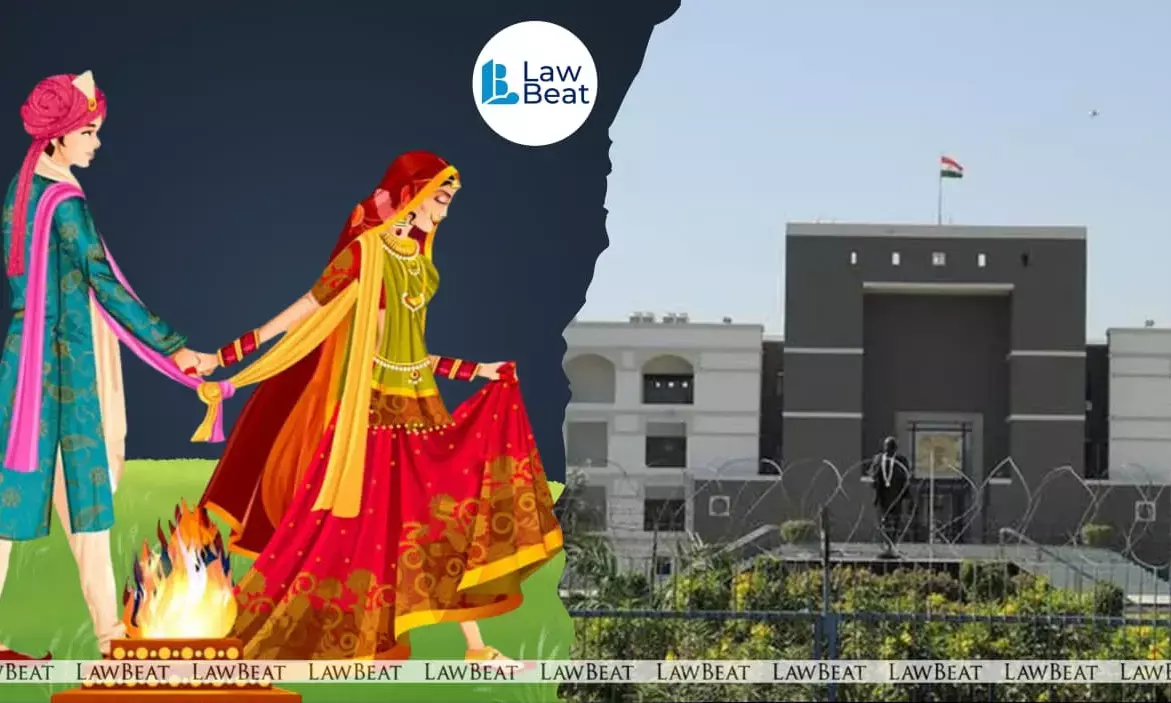Hindu Marriages in India Cannot Be Dissolved Abroad, Rules Gujarat High Court

Married in India? Only Indian law can end it, says Gujarat HC
The Gujarat High Court has held that marriages solemnised under the Hindu Marriage Act (HMA) in India cannot be dissolved by foreign courts merely because the couple later acquired foreign citizenship.
"For a Hindu marriage, the citizenship of the parties to the marriage has absolutely no relevance and what is relevant is only the fact that both the parties profess the Hindu faith and agree to bind their marital relationship in terms of the HMA. Thus, a Hindu marriage conducted in India in accordance with the religious ceremonies and customs will always be governed by the provisions of the HMA and cannot be governed by any other law even if the parties acquire a new domicile or a citizenship of any country in the world," the division bench of Justices A.Y. Kogje and N.S. Sanjay Gowda clarified.
The bench underscored that the domicile of a husband and wife after the marriage, in law, would be of no consequence to a Hindu marriage.
A couple married in Ahmedabad in 2008. After moving to Australia, they became citizens there, but their relationship soon deteriorated. The husband sought divorce in the Federal Circuit Court of Australia, which in 2016 granted dissolution of marriage. The wife returned to India and filed proceedings in Ahmedabad, including a petition under Section 125 CrPC for maintenance, a suit for restitution of conjugal rights under the Hindu Marriage Act, and a suit seeking a declaration that the Australian divorce decree was null and void.
The family court rejected her suits, holding that the Australian court had jurisdiction since the couple were Australian citizens. The woman challenged this before the High Court.
In its detailed 48-page judgment, the High Court overturned the family court’s findings, declaring that the very foundation of Hindu marriage law would be undermined if foreign jurisdictions were allowed to unilaterally dissolve such marriages. The court relied heavily on the Supreme Court’s landmark 1991 judgment in Y. Narasimha Rao v. Y. Venkata Lakshmi, which held that foreign divorce decrees are not binding in India if they do not conform to grounds available under the Hindu Marriage Act.
The bench noted that Hindu marriages are unique because they are not merely contracts but also sacraments, deeply tied to religion and culture. While the law now permits divorce, it does so only on limited statutory grounds. Importantly, the concept of “irretrievable breakdown of marriage,” often relied upon abroad, is still not recognised under Indian law.
"The fact that the concept of an irretrievable breakdown is yet to be brought into the Act despite the lapse of 70 years since the HMA was enacted and despite several Law Commission recommendations to that effect only emphasizes the fact a Hindu marriage carries with it certain unique feature vis-à-vis divorce and a Hindu marriage cannot be dissolved easily. Thus, every Hindu marriage will have to be viewed and considered in this prism and not the general notions of a marriage and divorce associated with the other religions," court held.
Court further underscored that accepting foreign decrees in such cases would create confusion, a person may be treated as divorced abroad but remain married in India.
"If the parties to a marriage which was conducted in India come back to India and thereby indicate that their origin domicile of birth subsisted, they cannot be permitted to initiate proceedings in a country which had become their domicile by choice,” the court observed.
Referring to the Supreme Court's judgment, the High court held that whenever the matrimonial status of any person is the subject matter of any declaration sought for, it is only the Family Court which would possess the jurisdiction to try the suit.
Accordingly, court set aside the impugned order of the Family Court and asked it to decide the Family suits filed by the wife seeking for restitution of conjugal rights and for a declaration that the decree of divorce obtained by the husband in the Australian Court, on its own merits and in accordance with law.
Case Title: X vs Y
Judgment Date: August 8, 2025
Bench: Justices A.Y. Kogje and N.S. Sanjay Gowda
